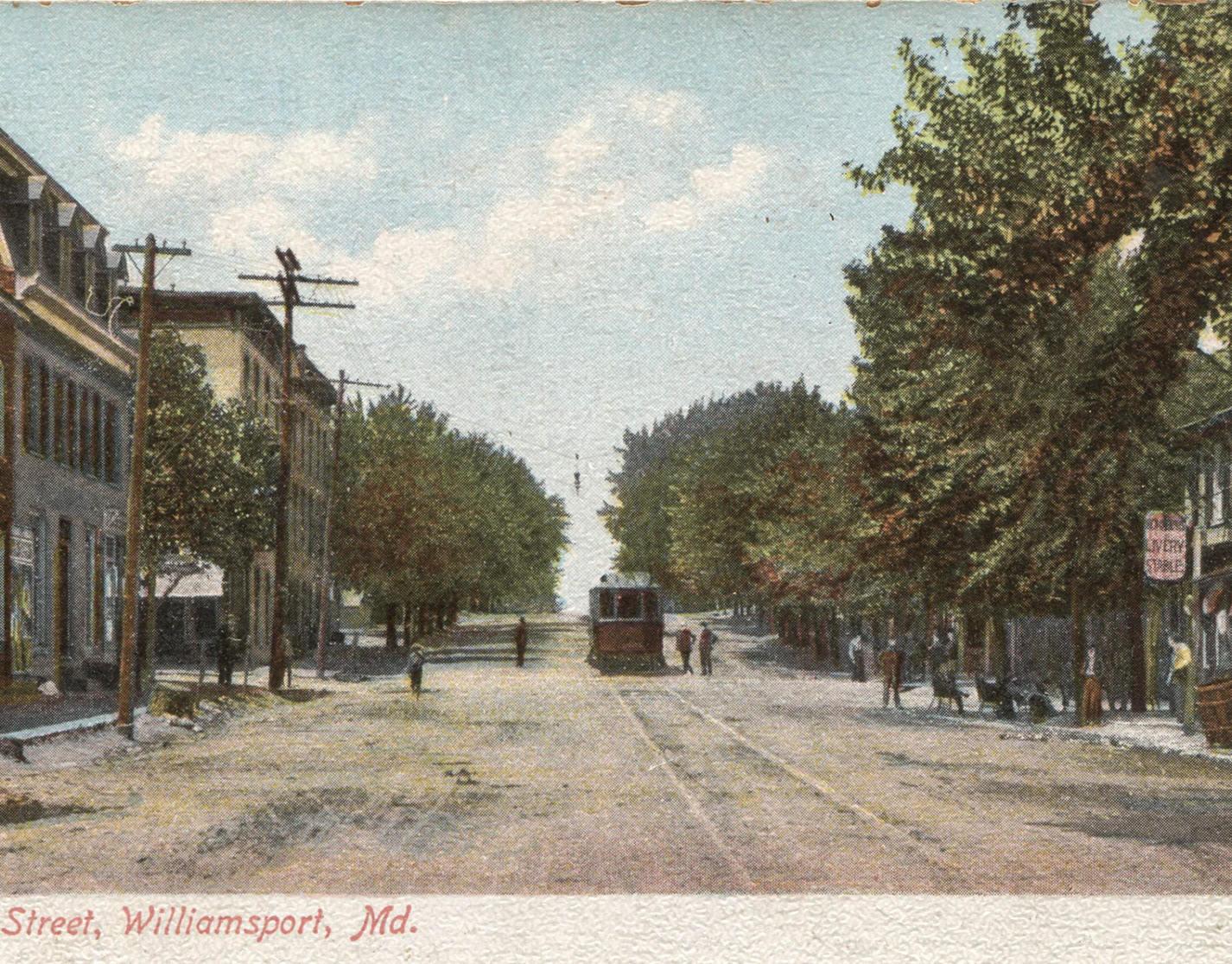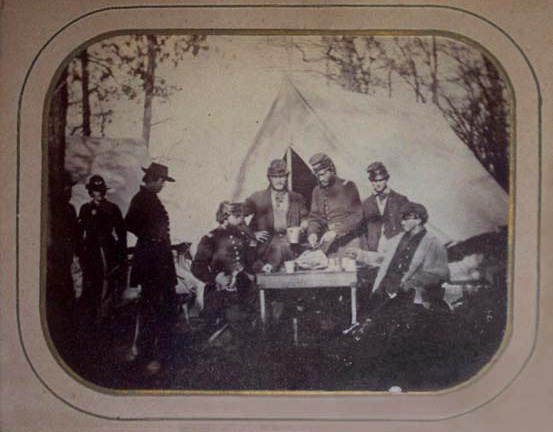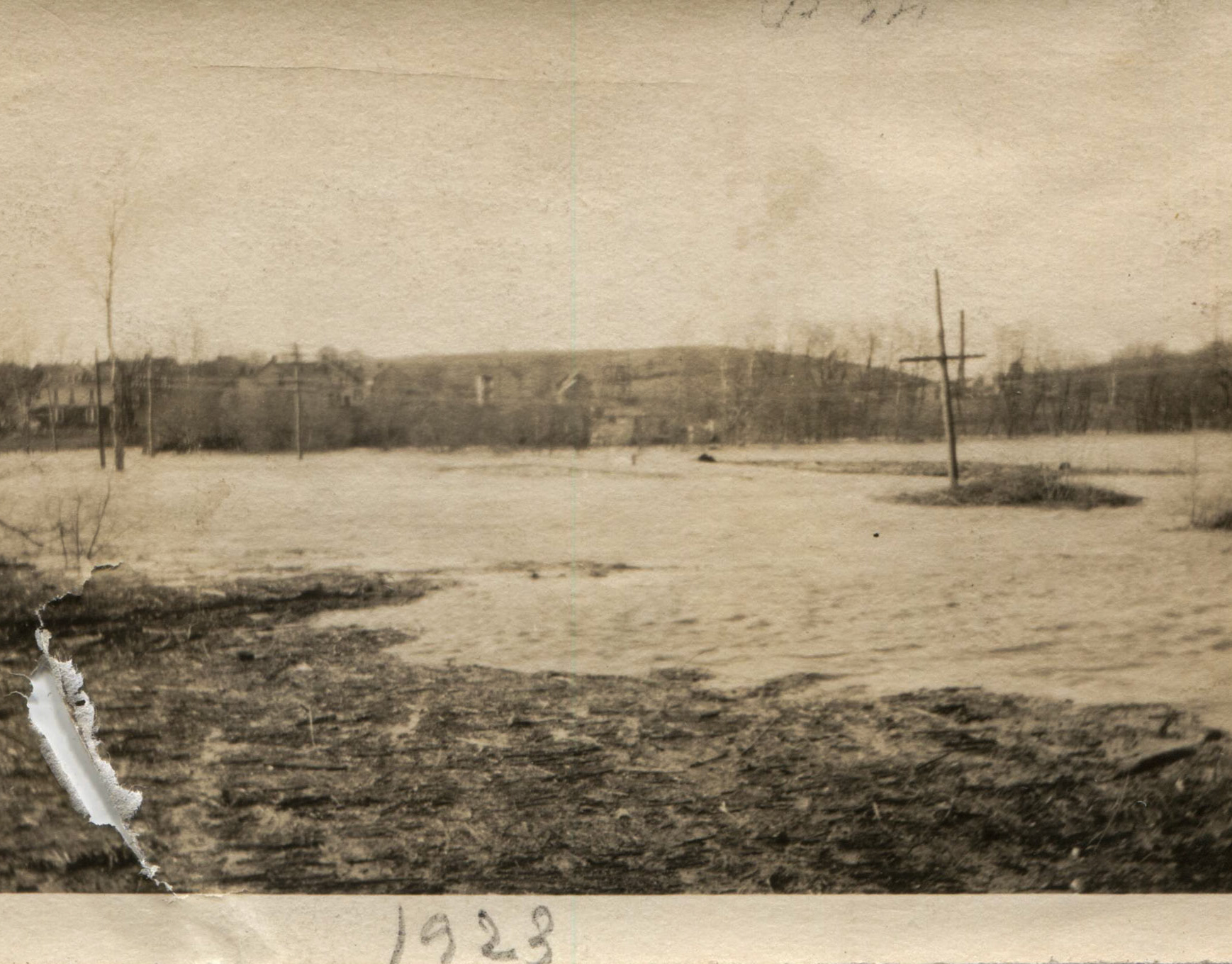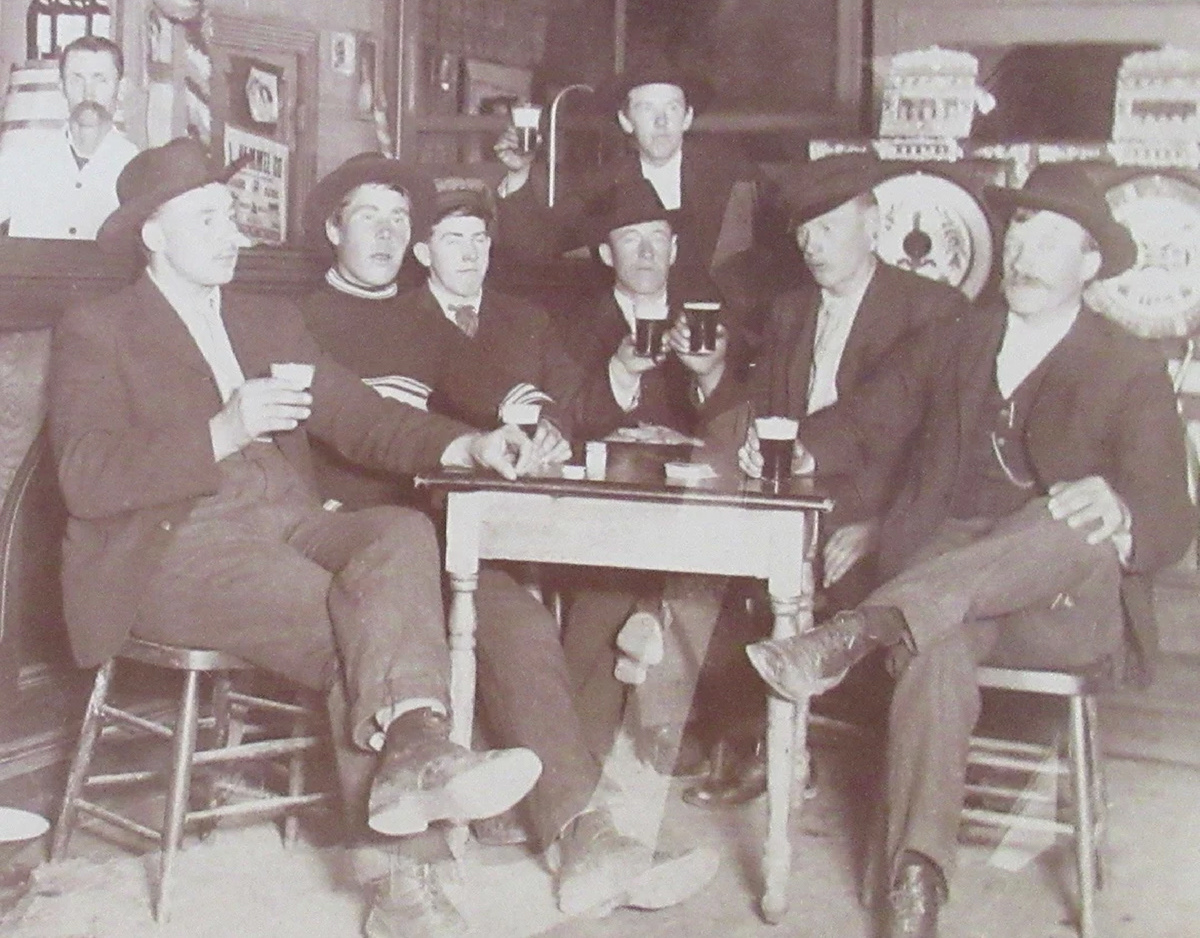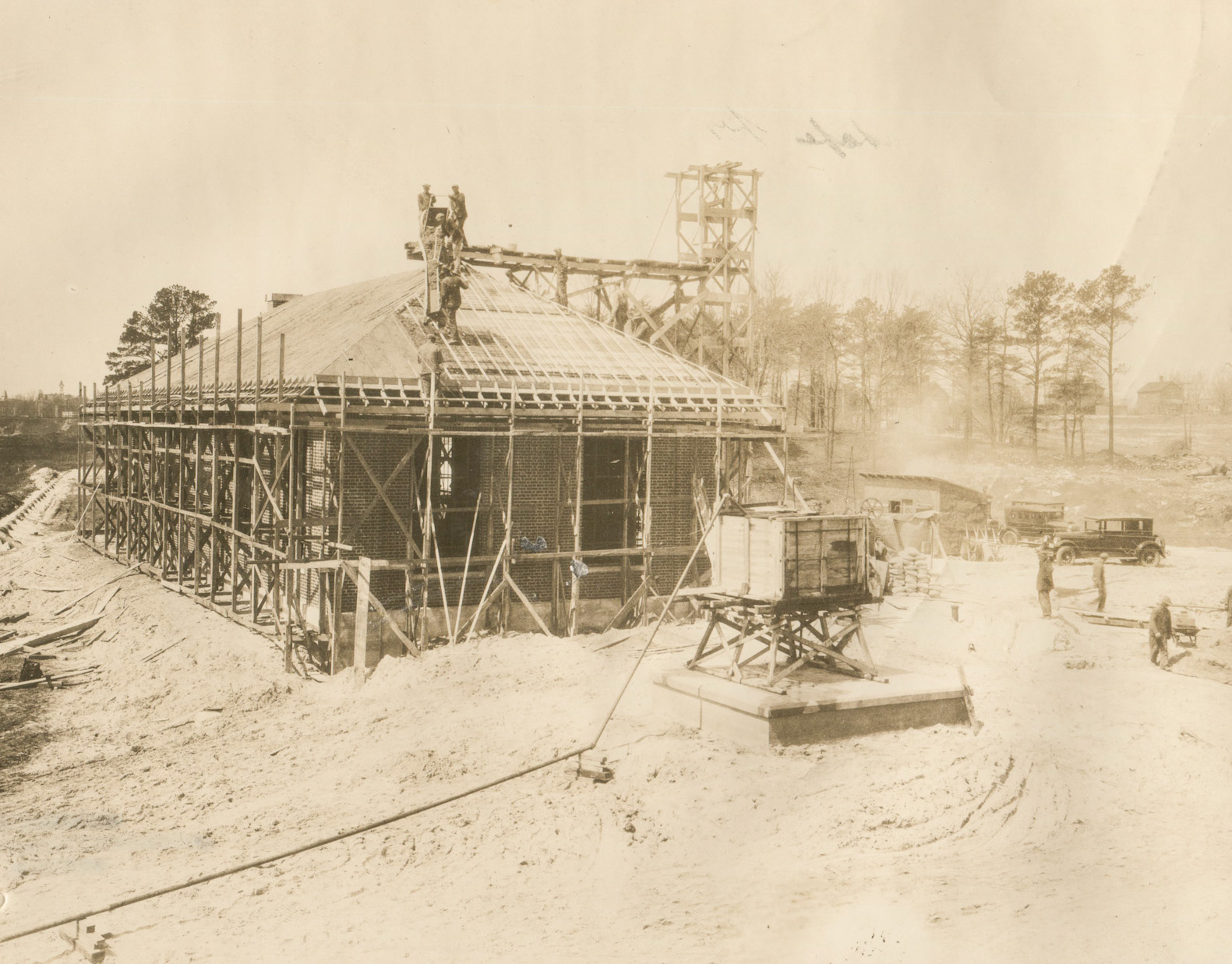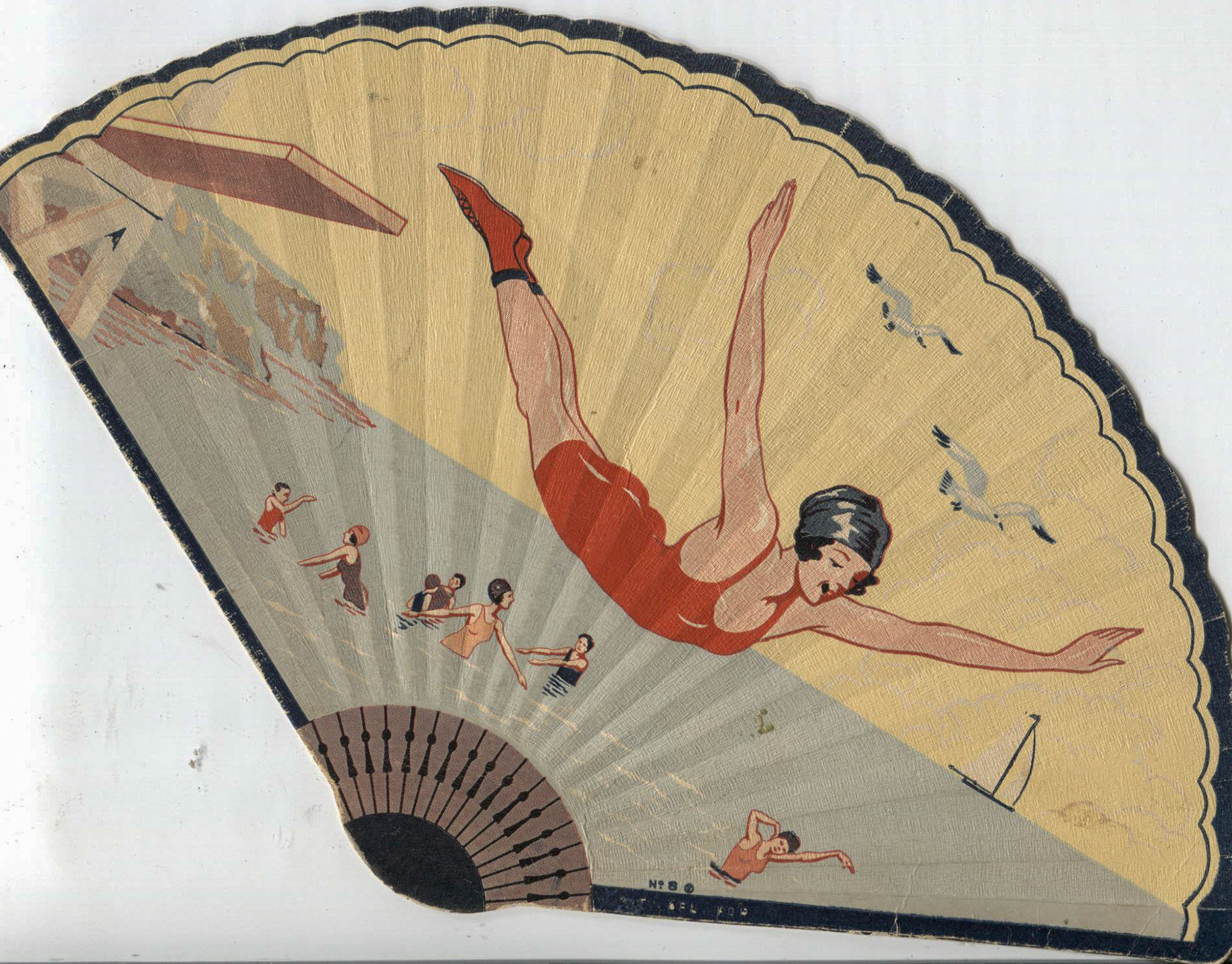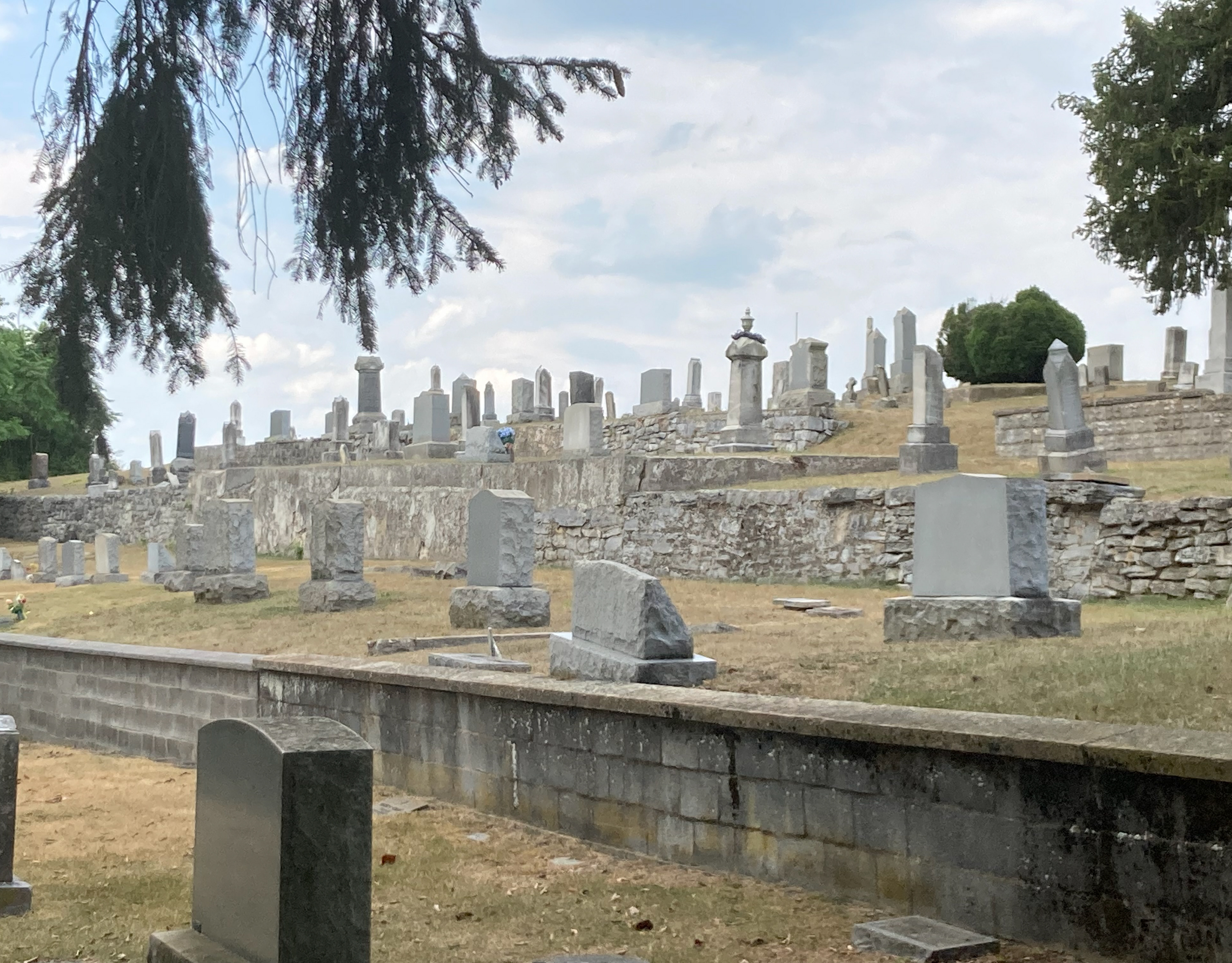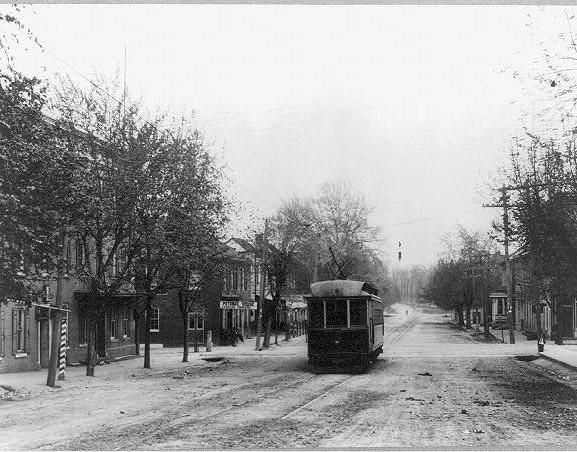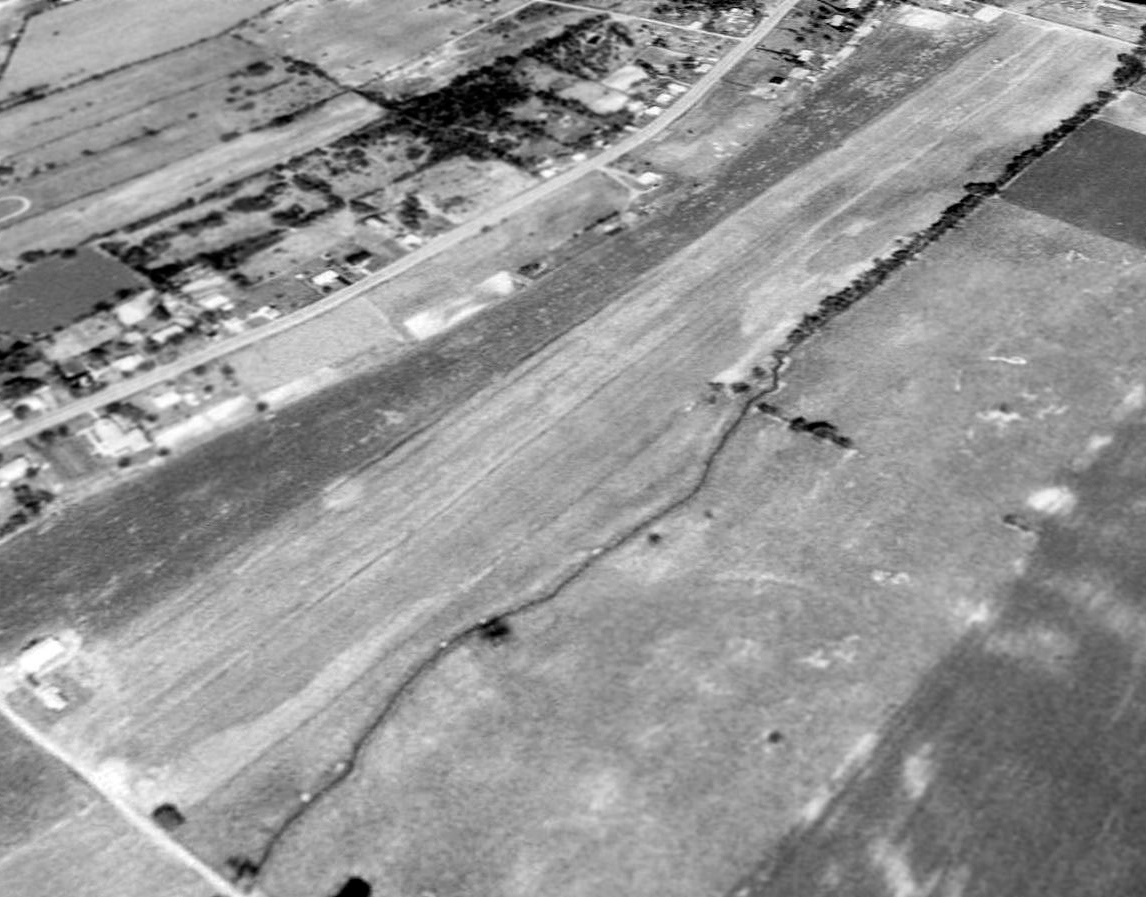Maryland Assembly authorized the town of Williams-Port to incorporate on February 10, 1823
Williamsport Citizens officially adopted Incorporation on April 1, 1824,
and elected their first Burgess, Assistant Burgess, and Commissioners.
1787 to 1824 - Williams-Port
1824 to Present - Williamsport
For the first thirty-seven years, from May of 1787 until April 1, 1824, Williams-Port was a propriety town owned and operated by the Williams family. Unfortunately, no member of the Williams family actually lived there until 1814, when Edward Greene "Ned" Williams inherited and moved into Springfield Farm. The town had no mayor, commissioners, or burgess supervising the town; there was no sheriff or bailiff protecting the citizens from unruly behavior and no public schools, sidewalks, or road improvements. There were no ordinances on sanitation; residents tossed the contents of chamberpots, manure, offal, dead animals, and unmentionables into the street or onto nearby empty lots. Dogs, geese, and other livestock had free run of the streets.
The transition of towns to incorporation and self-governing was an emerging trend in the early 1800s for a number of reasons. Populism emphasizes the common man's right to share in making public policy regardless of status or wealth. The right to an education is made available to all rather than a privilege. Public health, the availability of clean water, and, with increasing populations, general sanitation of the towns were among the highest priorities.
General Otho Holland Williams died just seven years after the founding of his town, leaving four infant sons. His wife died a year later. The burden of supervising the town and rearing his young children fell to his executors - his father-in-law William Smith of Baltimore and his brother Elie Williams of Hagerstown and Clerk of the Court. Robert Smith and Elie Williams diligently performed their duties as executors of Otho Holland William's estate for the next sixteen years. Lots in the town sold, and Williams-Port grew while Otho's four sons were raised and educated in privilege and comfort in Baltimore.
By 1810, the four Williams boys were adults and petitioned the court to divide their father's estate equitably. The oldest, William Elie Williams, received a large plantation just north of Frederick at Ceresville, Edward Green Williams received Springfield Farm at Williams-Port, and the two younger sons received properties in Baltimore City.
A graduate of Princeton, Edward Green "Ned" Williams, moved to Springfield Farm in about 1814 and embraced his new-found role as town father. The town inhabitants liked Ned, and for the first time, a Williams was living in Williams-Port. Ned significantly improved the old house at Springfield, adding two large wings to the home and transforming his property into a 600-acre working plantation. As owner of the entire riverfront, Ned negotiated with the Canal Company for his town's role in the canal destined to be built on the Potomac River. When completed, the canal would transition Williams-Port from a simple ferry boat landing to a major canal port with a deepwater basin and aqueduct, and it held promise for great prosperity to the inhabitants. It was time for the town to make substantial changes if they wished to reap all the benefits that a major port on the canal would bring. Incorporation could transition Williams-Port from the loosely proprietary rule of the Williams family to a self-governing city with an elected leadership.
On February 10, 1823, the Maryland Assembly passed a bill authorizing the incorporation of the town of "Williamsport" - without the hyphen. It is important to note that this bill approved the right to incorporate; it did not make Williams-Port an incorporated town. The bill outlined how and when the incorporation would occur and gave the town over a year to organize.
The 1823 act authorizing incorporation stated the town was to hold elections for a burgess, an assistant burgess, and five commissioners on April 1, 1824, at a tavern in Williams-Port. Candidates were required to be property owners in the town with at least one year of residency. Only white men aged 21 and older with at least one year of residency could vote. After being elected, the burgess was to meet "from time to time," but not less than every three months, and wherever they met was called the town hall. The elected officials would be empowered to create ordinances and laws and impose fines and taxes.
One might suspect that from February of 1823 until April 1, 1824, was a time of high controversy for the citizens of old Williams-Port. Incorporation meant supervision, no more Cock-Fights, street brawls, shooting guns, or tossing offal and manure into the vacant lot next door. Incorporation meant elections, taxes, and ordinances with fines for those who failed to comply. However, having an elected body held the promise of a more civilized neighborhood, brick sidewalks, public schools, paved streets, and fewer odors from unsupervised waste disposal.
In 1820, Williams-Port had 836 residents in 135 households. Only about half of the 331 white males were over twenty-one and eligible to vote. The other residents were 312 white females, 120 slaves, and 73 free blacks. The first town elections were held at the Charles Hesletine's Bell Tavern on the corner of Potomac and Conococheague Streets on April 1, 1824. Jacob Wolf was elected first town burgess (a position he would hold until 1833), with assistant burgess Michael A. Finley, George Moudy, and Daniel Weisel, commissioners. Like today, a notice published in the local newspaper was essential to the act. The Williamsport Act of Incorporation appeared in the Torch Light & Public Advertiser newspaper on April 20, 1824, notifying the citizens that the act had been ratified.
Someone, somewhere, has the original copies of Williamsport's first town meeting minutes as recently, transcribed copies of these minutes were found in the Western Maryland Room of the Washington County Free Library. Sadly, the first two pages of the minutes are missing. However, one can infer from notations in the minutes that the vote to officially incorporate Williamsport took place on April 1, 1824.
Starting on page three of the minutes from May 14, 1824, one can unravel the challenges facing the newly elected town officials. The first order of business was that "privies" needed to be dug at least six feet deep, with no exceptions. Second, citizens were no longer permitted to throw "putrid vegetable or animal matter" into the streets, alleys, or vacant lots, subject to a $2 fine if not removed within 24 hours. Third, cock-fighting and firing muskets, rifles, or pistols would no longer permitted in town limits. And no more riding horses on the sidewalks. Piles of lumber on the street of footpaths had to be removed within 24 hours. Law and order had come to Williamsport.
In August 1825, the burgess notified property owners to pave the entire length in front of their respective lots with brick. The first sidewalks to be improved were the entire length of Conococheague Street from Church Street north, the entire length of Potomac Street, and both sides of Salisbury Street. That same year, Benjamin Crow was appointed the first town bailiff and paid an annual sum of $8 to ensure ordinances were properly enforced. In 1826, the town purchased its first fire engine. In 1828, unsupervised dogs were a high issue. Owners were instructed to keep their dogs and sluts (an early term for a female dog) confined, and the first dog license ordinance was passed. Anyone owning a slut in town was required to pay a tax of $5 - the equivalent of over $160 in today's money. In 1828, the first "house of confinement," or jail, was built in Williamsport. The burgess appropriated $50 to build an eight-foot square structure to confine those who disturbed the peace.
Throughout 1830 and 1831, enforcing the cost of installing sidewalks in front of town properties was still being resisted by some residents. The burgess notified Ben Crow that he would be replaced if he didn't enforce the regulation. In April of 1831, the burgess tested their resolve and cited the Lutheran Church, owners of lots 210, 211, and 212 on Potomac Street, for failure to pay their portion of the cost of the sidewalks. The church lots were offered at public auction for non-payment; apparently, the church finally settled, and the burgess canceled the auction.
In April 1832, the town resolved to move the old market house from its location near the canal and erected a new market house on Salisbury Street. The market was open every Wednesday and Saturday from daylight until 10 a.m., except for meat, which could be sold from 3 a.m. The bailiff was instructed to occasionally inspect the merchants' weights and measures to keep them honest.
By mid-1833, the canal was nearing completion at Williamsport, and the aqueduct was under construction. Hundreds of workmen, primarily Irish, lived in shanty towns around the town and frequented the town taverns. In May of 1833, Burgess Andrew Friend ordered Elie Stake to close his "nine pine Allies" at candlelight to reduce the noise in the town. That same year, with the cholera outbreak, money was appropriated to build a temporary hospital west of the town (Hospital Hill). Additionally, the burgess purchased thirty feet of hose to have the streets and alleys cleaned of filth. In January of 1834, it became unlawful for any person to throw snowballs subject to a $1 fine.
In March 1835, the town initiated its first plan to have all the streets graded from "curb to curb" ten inches deep with the McAdam paving plan.
These town minutes from 1824 to 1841 provide a wealth of information about the development of our town and the challenges the residents faced. Many things we take for granted, like clean water, public safety, good sidewalks, and roads, were obstacles first met with resistance. Enjoy
Passed Feb. 10, 1823.
CHAPTER 195.
An act to incorporate the town of Williamsport in Washington County.
An act to incorporate the town of Williamsport in Washington County.
Sec. 1. Be it enacted by the General Assembly of Maryland That the citizens of the town of Williamsport, in Washington County, shall be, and they are hereby constituted and made a body corporate by the name of the Burgess and Commissioners of Williamsport, with all the privileges of a body corporate and to have a common seal and perpetual succession.
Elections.
2. And be it enacted, That the free white male citizens of Williamsport aforesaid, of the age of twenty-one years, and upwards, and having resided in the said town for and during the space of twelve months next preceding the election, shall, on the first Monday in April next, at the house now occupied as a tavern by Charles Heseltine, and on the first Monday in March in each and every year hereafter, at such house as shall hereafter be designated as the Town Hall, by the municipality, be authorised to elect a Burgess, an Assistant Burgess, and five Commissioners for the said town, who shall have resided within the limits of the said town twelve months next preceding the election, and who shall each be the proprietor of a house and lot, within the limits of the said town.
Judges of elections, &c.
3. And be it enacted, That a justice of the peace for the time being residing in the said town, shall appoint by writing under his hand and seal, one judge to hold the first election, who shall keep the poles open from nine o'clock in the morning until two in the evening, and shall conduct the said election in the manner in which the judges of election are now by law directed to conduct an election for delegates to the general assembly, as far as may be consistent with the provisions of this act, and the said judge shall make return under his hand and seal of the persons elected, to the clerk of Washington county, to be by him safely kept.
Future elections.
4. And be it enacted, That all future elections shall be held and conducted as shall be from time to time directed by the bye-laws of the corporation, the same not being inconsistent with the provisions of this act.
Presiding officers.
5. And be it enacted, That the Assistant Burgess aforesaid at all meetings of the municipality shall in the absence of the Burgess preside, and when the Burgess is present shall have the same power and authority as one of the commissioners.
6. And be it enacted, That the Burgess and Commissioners aforesaid or a majority of them, may meet together from time to time as often as occasion may require upon the business of the town, and not less than once in every three months, and if during the year for which they may be elected, the Burgess, Assistant Burgess or any of the Commissioners should die, resign, remove from said town, or be noncompos or displaced, an election to fill the vacancy shall be held, at which all persons qualified as is specified in the second section of this act, shall be entitled to vote.
Meetings — Vacancies.
7. And be it enacted, That the said Burgess and Commissioners, or a majority of them, shall have power to appoint a clerk and assign his duties, and allow him such compensation for his services as they may think proper; and that all ordinances passed by the said Burgess and Commissioners, shall by their clerk be entered in a book to be kept by him for that purpose, and shall be open at all times for the inspection of any person interested, and copies of all ordinances shall be put up in the most public places of said town, that the same may be generally made known.
Clerk, his duties, &c.
8. And be it enacted, That all fines and forfeitures under the ordinances of the said corporation, shall be recoverable before the Burgess aforesaid, as small debts are recoverable out of court, or before a justice of the peace.
Fines & forfeitures.
9. And be it enacted, That the Burgess and Commissioners aforesaid, may direct by ordinance all or any of the footways in the said town to be laid off and levelled and paved, or amended and repaired, with any materials, which to them may seem best; and such levelling and paving shall be made and done at the expense of the proprietors of the different lots, before which the Burgess and Commissioners aforesaid shall direct such levelling and paving to be done.
10. And be it enacted, That if the owner or owners of any house, lot or part of a lot, where such levelling, paving, repairing or amending shall be directed, shall not reside in the said town, the tenant or person occupying the same, or who shall have the charge and care thereof shall cause the same to be done before the front of such possession, and the money expended by such tenant or other person in and about the said work in obedience to the ordinance and direction of the Burgess and Commissioners aforesaid, shall be allowed by the owner, and deducted out of the rent then due or thereafter to become due; & if any owner or tenant of any house, or lot or part of a lot, or the person having die care of the same, shall refuse or neglect to level, pave, amend or repair, the footway in front of the same according to the ordinance and direction of the Burgess and Commissioners aforesaid, it shall and may be lawful for the Burgess and Commissioners aforesaid, to contract and agree with some person or persons on reasonable terms, to level, pave, amend or repair such footways, and to charge the expense thereof to the owner or owners of the property in front of which such work may be done, and shall recover the same by distress on such property with cost.
Pavements, &c. Non-residents.
11. And be it enacted, That the said Burgess and Commissioners shall have power to make all such bye-laws, regulations and ordinances as from time to time they may deem wise, equitable and expedient for the comfort, health, convenience, and prosperity of the said town and its inhabitants, for the prevention or removal of nuisances, preservation of health and suppression of vice and immorality within the limits of the said town, and shall have power to lay an equal tax on the property within the limits of the said town to such amount is may from time to time be deemed necessary to accomplish the purposes aforesaid, which tax shall be collected and paid to the said Burgess and Commissioners by a collector by them appointed, who shall have the same power to destrain therefor, as the collector of the public county assessment has to destrain for the same, and that the said Burgess and Commissioners shall fix the term of office, responsibility and compensation of such collector.


